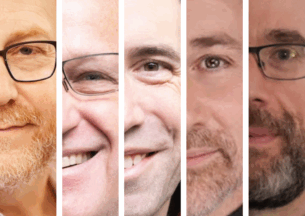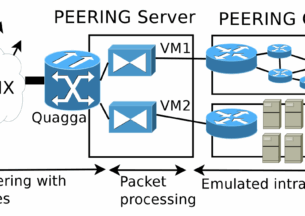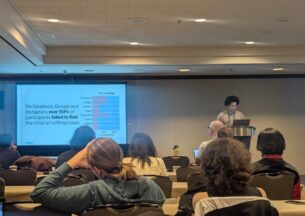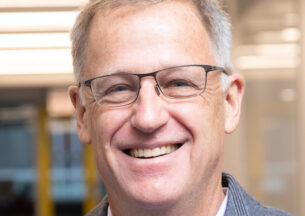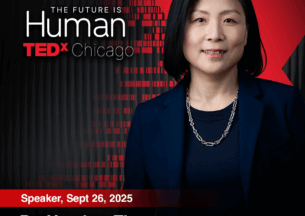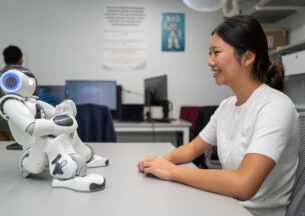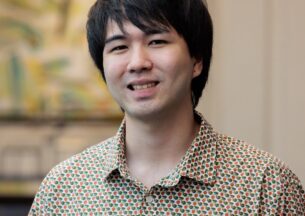NobleReach Scholar Bridges Tech and Public Service Through MSCAPP and AI Advisory Work
 As governments seek new ways to harness technology for the public good, programs like NobleReach are connecting early-career experts with the opportunities to do just that. Gregory Mitchell, a recent Master of Science in Computational Analysis and Public Policy (MSCAPP) graduate at the University of Chicago, was chosen from more than a thousand applicants to join this year’s cohort, marking a pivotal step in the movement toward tech-enabled public service. The NobleReach Scholars program launched to connect exceptional early-career technical talent with impactful public service roles. Scholars are placed in public service tech roles across 15 federal, state, and local government agencies and five mission-driven industry partners. The fellowship emphasizes not only hands-on experience but also intensive training and mentorship, aiming to build a new generation of leaders committed to public good. As governments rely more on technology to tackle complex social problems, the demand for professionals fluent in both computation and policy is rising. Programs like MSCAPP and initiatives like NobleReach are forging a new path for tech-savvy leaders who want to make a meaningful difference in public service.
As governments seek new ways to harness technology for the public good, programs like NobleReach are connecting early-career experts with the opportunities to do just that. Gregory Mitchell, a recent Master of Science in Computational Analysis and Public Policy (MSCAPP) graduate at the University of Chicago, was chosen from more than a thousand applicants to join this year’s cohort, marking a pivotal step in the movement toward tech-enabled public service. The NobleReach Scholars program launched to connect exceptional early-career technical talent with impactful public service roles. Scholars are placed in public service tech roles across 15 federal, state, and local government agencies and five mission-driven industry partners. The fellowship emphasizes not only hands-on experience but also intensive training and mentorship, aiming to build a new generation of leaders committed to public good. As governments rely more on technology to tackle complex social problems, the demand for professionals fluent in both computation and policy is rising. Programs like MSCAPP and initiatives like NobleReach are forging a new path for tech-savvy leaders who want to make a meaningful difference in public service.
Previously having studied economics and community development, Mitchell did a lot of program evaluation work in his career before joining MSCAPP. He was helping local governments and nonprofits understand their constituents, their stakeholders, and improve their policies, and wanted to improve the systems using data-driven methods to make a difference. Mitchell’s transition from program evaluation in the nonprofit sector to technical, data-driven solutions underscores how MSCAPP prepares graduates to blend policy analysis with hands-on computational work. The program’s emphasis on actionable data allowed Mitchell to move from understanding public sector challenges to actually designing innovative tools that address them.
“One of the things that frustrated me,” Mitchell reflects, “was that we’d often research really important issues and even identify potential solutions, but not see them implemented. That sparked my interest in actually putting ideas into practice, especially when research and data can guide the way. I realized I enjoy building tools people can use—like an AI-powered dashboard using natural language and SQL for visualizing data. That hands-on work is what led me to my internship last summer in Nairobi, Kenya, at IDInsight, developing a similar product.”
Mitchell recently completed a two-week bootcamp in Washington, D.C., kicking off the NobleReach Scholars Program. The bootcamp immerses scholars in government operations, public policy challenges, and the practical realities of effecting change within bureaucratic environments. The cohort is intentionally diverse, representing several technical domains, including AI, cybersecurity, and business process innovation.
“The goal is to bridge the gap between technical training and public service,” Mitchell shares. “We learn not just about policy, but how to work within government, navigate its challenges, and apply our knowledge to real-world scenarios.”
Looking ahead, Mitchell is eager to dive into his placement with Montgomery County, Pennsylvania’s newly formed Advisory Council on Artificial Intelligence for Public Good, where he is tasked with evaluating potential AI use cases, building prototypes, developing ethical frameworks, and advising on responsible AI integration into county services. This council, established in 2025, embodies the county leadership’s commitment to harnessing technology for improved public services, transparency, and trust. By collaborating with county experts, Mitchell’s work will help shape AI solutions that go beyond efficiency gains, addressing challenges such as food access and community engagement. His role also includes developing ethical frameworks that ensure these technologies align with public values—enhancing transparency and building trust in local government.
Mitchell’s journey highlights a wider movement: technologists and policy experts teaming up to shape the future of public service. As AI and data science continue to transform how governments interact with communities, fellows like Mitchell are not just developing new tools—they are helping to define the values and approaches that ensure technology genuinely serves the public good.


